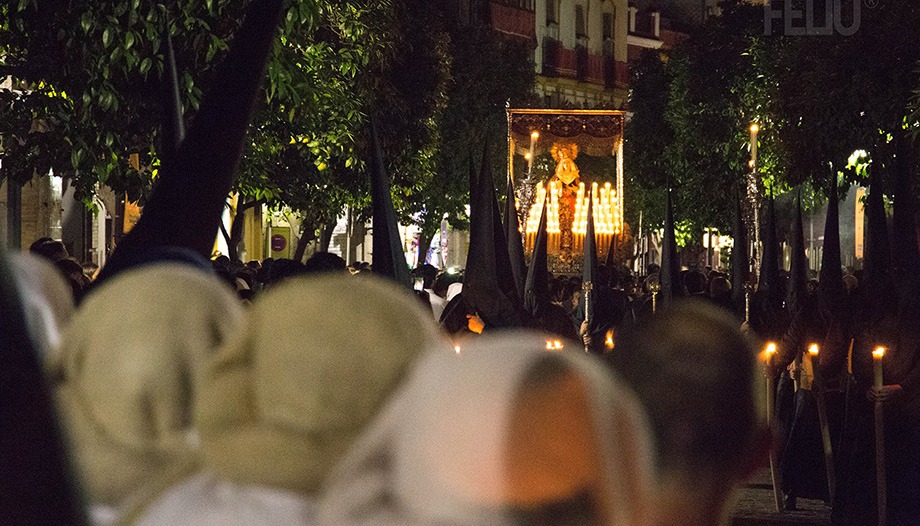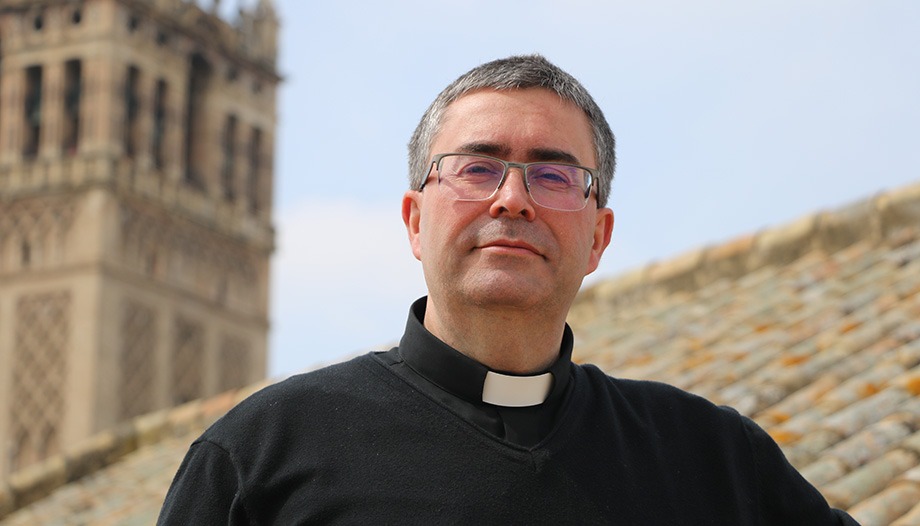Marcelino Manzano has been in charge of the company for almost 10 years. Delegation of Brotherhoods and Brotherhoods of Seville. This priest, ordained in 2001, is in charge of ensuring, among other things, that the brotherhoods and confraternities "live their ecclesial identity, and that their members grow in personal sanctification, are adequately formed in the doctrine of the faith and serve the poor, making possible the proclamation of Jesus Christ, especially to the distant, and building a culture of life".
Only the city of Seville has more than fifty Brotherhoods of Passion, the best known by the general public, which perform their penitential station during the days of Holy Week and which are multiplied by 10 in the whole Archdiocese, bringing together more than half a million faithful, brothers and sisters of these Brotherhoods and Confraternities.
They are "the dike of containment" of secularization, as several bishops have called it. Thanks to them, sacramental life continues to be present in a large part of Spain and, especially, in Andalusia.
In this interview with Omnes, Manzano highlights, among other aspects, the need to "continue working on the formation of the brothers" and "take advantage of the language of the confraternities, through which God touches hearts, so that the confreres live the Gospel".
How to encourage Christian commitment and the life of faith through the Brotherhoods and Confraternities?
- In all honesty, when I visit the various brotherhoods of our archdiocese (about 700), I see a large presence of brothers and sisters.
Of course, in the processions the participation is multitudinous, but in the acts of worship and piety (Masses, celebrations of the Word, acts of prayer and veneration of images) and in other events, the participation is also very high.
Our pastoral challenge in the brotherhoods is, indeed, to move more and more from a faith of presence to a faith of deep Christian commitment.
The sororities of Seville have a great charitable and formative commitment, but we must continue to grow in a personal conversion of faith, so that the experience of the mystery of Christ, which is carried out with so much emotion and intensity, leads to a growing evangelical and prophetic life. For this we must continue to work on the formation of the brothers, starting with those in charge, the Governing Boards, and from there the others who approach the brotherhood and whose commitment, without being so constant, is also significant.
Do you think the Church really appreciates popular piety and its manifestations?
- Personally, I think that the Church has regained an appreciation for the ecclesial value of popular piety, encouraged by Pope Francis, who in "Evangelii Gaudium"is an important part of it. Almost half of our seminarians, for example, come from the world of the brotherhoods, which seems to me a fact to be taken into account.
We touch here one of the basic and at the same time most difficult topics of the Brotherhoods: the solid and real Christian formation of its members. How can we approach a topic that may seem almost impossible?
- I do not believe that the issue of formation is almost impossible. In Seville and in other dioceses of Andalusia great steps are being taken in this direction, although it is true that there is still work to be done. The important thing is to persevere and never give up.
I believe that there is a twofold way of approaching it: on the one hand, the need to accredit a minimum formation to accede to a governing board position, offering various means (theological institutes, catechetical schools, specific formation schools for governing boards, etc.).
On the other hand, framing the training It is offered to young people and adults as an opportunity to grow in the love of Christ and Mary, together with the other activities that are carried out.


In this sense, who is responsible: the confraternity, the brothers, the spiritual directors, the episcopal leader in the last instance?
- The responsibility is, first and foremost, that of the spiritual director and of the elder brother in the case of the brothers. In the case of formation for governing boards, the responsibility lies with the diocese.
If the HHyCC can "boast" of anything, it is their power to "mobilize" young people. Is there not a danger of remaining in an aesthetic, superficial experience of belonging to a Brotherhood?
- My experience is that when we priests become close to and accompany the women and men who are sororitiesIf we propose to them a spiritual life that embraces the rich language of the confraternities, taking advantage of their elements, a deep experience of God is produced, and I refer again to the priestly vocations that arise from the brotherhoods in our archdiocese.
How to take advantage of this potential for the real renewal of the pastoral life of the Church in all its areas: from parish life to religious life or vocations?
- The Diocesan Delegation for Vocation Ministry is also very much present in the sororitiesThe young confreres are invited to vocational celebrations, taking advantage of days of worship or prayer, and calling young confreres to vocational celebrations.
It seems to me that it is essential to take advantage of the language of the confraternities, through which God touches hearts, so that the confreres live the Gospel and become in turn bearers of the Word and evangelizers.
Does it not seem to you that, at times, the integrating and evangelizing power of the "first proclamation" of popular piety is wasted?
- Certainly, there can be misgivings about popular piety, which also still needs conversion, but I agree that it is a way for the first proclamation. It is the via pulchritudinisThe way of beauty, which is joined by the way of emotion, of the heart, of feeling, which on many occasions is the language of the simple.
Let us not forget what Jesus says: "I thank you, Father, that you make these things known to the simple of heart, for so it seemed good to you to do".
For centuries, the brotherhoods have been a valuable instrument of faith and evangelization, always faithful to the demands of the Church.
Marcelino ManzanoDiocesan Delegate of Brotherhoods and Confraternities. Archdiocese of Seville
What are the challenges facing the brotherhoods and sisterhoods at this time?
- Improve formation and insertion in parish communities. An openness that is mutual between the sisterhood and the other parish groups.
To grow in the personal experience of Christ, which leads to a moral life in accordance with the Gospel and the magisterium of the Church and in the prophetic denunciation of injustices.
And finally, to assume an evangelizing commitmentThey can and should be a point of reference. In our archdiocese we are already having very fruitful experiences in this sense, and the brotherhoods are getting excited about being useful in this facet.
I am sure that the Lord will continue to guide and accompany us. Not in vain, for centuries, the brotherhoods have been a valuable instrument of faith and evangelization, always faithful to what the Church has been demanding of them.












